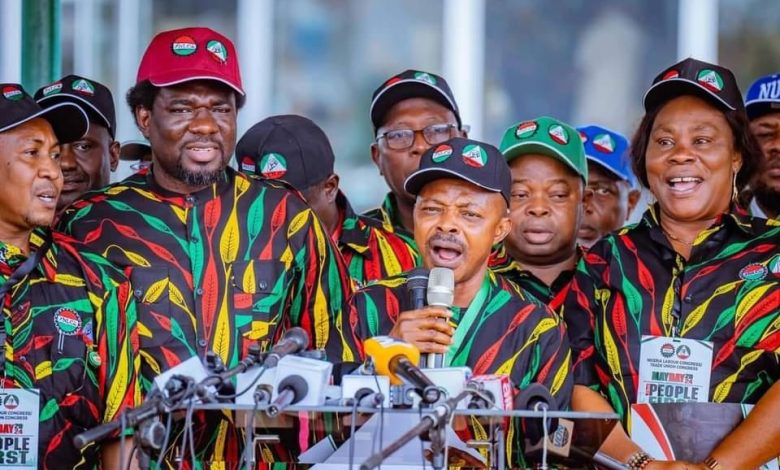Senior workers in the telecom sector has faulted the call by the Nigerian Labour Congress (NLC) for mass protest against the approval of 50 per cent hike in end user tariffs of telecom services in the country by the Nigerian Communications Commission (NCC).
They accuse the leadership of the Congres of taking decisions without consulting the workers to seek for proper education over the issues in the sector.
Acting under the aegis of Private Telecom and Communications Senior Staff Association of Nigeria, the workers, in a letter dated January 27, 2025 and addressed to the president of NLC and attentioned The National Administrative Council, said following the Federal Government’s approval and Labour’s position, they were preparing to meet with the leadership only to see a communique instructing “affiliate unions to commence mobilisation of their members for protest on 7th February, 2025”.
The letter endorsed by the workers General Secretary, Okonu Abdullahi, read: “It is our firm belief that the Congress leadership has acted in error in taking these decisions without prior consultation with our union that operates in the sector. Perhaps, getting in touch with us would have assisted the leadership in taking a better (more informed) decision than it had taken.”
The group said while it appreciates the concern of Labour over the burden the planned increase will have on the masses, the called attention of NLC President Joe Ajaero to the fact that the increment had become inevitable and was done to avoid the impending collapse of the sector.
“Recall sir that from the inception of this government, it removed subsidy on fuel which led to exponential increment in the prices of petroleum products. This has increased the cost of maintaining the telecom sites across the country. The petroleum product, automated gas oil, used in powering various base stations that make possible telecom services across the country has skyrocketed in price from N842.25 to an average of N1,441.28 between 29th May 2023 and 27th January 2025. Similarly, the premium motor spirit (petrol) used to fuel the field engineers’ cars who maintain the base stations has skyrocketed from N198 to N1.030 or higher depending on the location in the country within the same period.
“The field engineers, both base station and fibre maintaining officers, running into several thousands in number must fuel their vehicles to enable them move around to do their jobs now spend so much to do their job,” Abdullahi said.
According to him, electricity which should serve as a better alternative also has experienced a throat-slithing tariff with the introduction of bands.
“Therefore, there’s no way out of high running cost on maintenance of the telecom sites. Also, the operational offices of the operators, including service centres, are located in the cities that are categorised as Band A. Therefore, there’s no succour whatsoever between the electricity and petroleum sources of running the business.
“Furthermore, there’s always need for routine maintenance and changing of telecom equipment for effective and efficient communication services. To accomplish this, foreign currencies, especially dollars and pounds are needed to import the needed equipment. Sadly, with the introduction of the floating policy of the naira, the companies need so much more naira to exchange for the foreign currencies than they usually hitherto needed. Putting it in the right perspective as done previously, the naira was exchanging for N460 to 1 dollar before May 2023 and today, it is around N1.700 to 1 dollar,” he said.






